Really? Our Jill?
Well, not Jill herself, who’s the same radiant polyamorous creature she was when she first began writing novels on my typewriter some 55 years ago. There have been nine books over the years, published variously by Fawcett, Midwood, Berkley, Putnam, Arbor House, and, most recently, Hard Case Crime.
The ninth book, Getting Off, is still in print and ebook with Hard Case—and in audio at Recorded Books. The rights of the other eight reverted to me, and a few years ago I republished them in uniform covers with a strong assertion of authorship: “Lawrence Block is Jill Emerson.”
That served to brand the books reasonably well, but lately I’d come to realize I just wasn’t all that crazy about the covers. The common design made them look too much of a piece, and the books don’t actually run to type. (Our Jill has always been, in more ways than one, a Versatile Lady.)
So, as the indispensable JWM and I have been working up new covers, we were incentivized by a new development at KDP, Amazon’s division for self-publishers. They’ve made it possible for me to offer hardcover editions of the books I publish. (These are 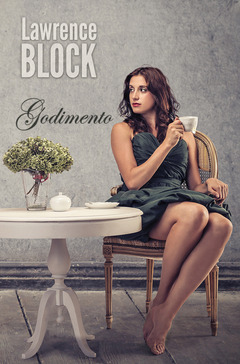 of the sort generally known as Library Bindings, although the printing trade is more apt to designate them as Case Laminated. Whatever you call them, they’re hardbound books produced without removable paper dust jackets; the cover art and copy that would appear on a dust jacket is printed directly on the book’s hard cover.)
of the sort generally known as Library Bindings, although the printing trade is more apt to designate them as Case Laminated. Whatever you call them, they’re hardbound books produced without removable paper dust jackets; the cover art and copy that would appear on a dust jacket is printed directly on the book’s hard cover.)
Just to see how it would work, we began with a hardcover edition of Godimento, Annalisa Passoni’s fine Italian translation of Getting Off. The result was an exceptionally attractive and durable volume, and it immediately inspired me to make all the newly-packaged Jill Emerson titles available not only as ebooks and paperbacks but in hardcover editions as well.
I bet you’re going to show us the covers. And while you’re at it, you’ll find something to tell us about each of the titles.
You know me so well.
The first book, Shadows, is the story of a young woman who graduates from a Midwestern college and comes to New York’s Greenwich Village to discover her sexual identity. She finds an affordable apartment right away and spends the next fifty 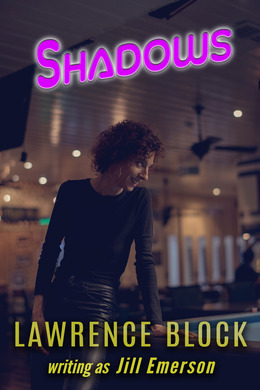 thousand words figuring out whether she’s gay or straight; nowadays, I have to say, it’d be more realistic to reverse the two timelines.
thousand words figuring out whether she’s gay or straight; nowadays, I have to say, it’d be more realistic to reverse the two timelines.
Shadows has actually been around longer than Jill; it’s the first novel I ever wrote, and came out in 1959 under Fawcett’s Crest Books imprint, then the premier publisher of lesbian fiction. It bore a different title and a different pen name, and it had its beginnings in a burst of creativity that accompanied an absolutely insupportable hangover; all of this is related on the book’s Amazon page and discussed in greater detail in my forthcoming memoir, A Writer Prepares. When I first considered reprinting the book, I decided to revert to the title I’d placed on the manuscript originally, and realized too that it was very much a Jill Emerson book, whether or not she’d been around at the time of its creation.
Shadows was the name I had given to the lesbian bar where many of the book’s scenes are set—I had in mind the old Swing Rendezvous on MacDougal Street, which none of y’all are old enough to remember—so it seems appropriate that the title on the new cover resembles a neon sign. As noted, the novel is available as Ebook and Paperback and Hardcover, and gets an excellent Audio rendition from voice artist P J Morgan.
It was in 1964 that Jill sat down at my typewriter in a second-floor office at the corner of Brighton and Eggert Roads, in Tonawanda, New York. What came out of that typewriter was a novel that I called Shadows and Twilight—I guess I really wanted to see the 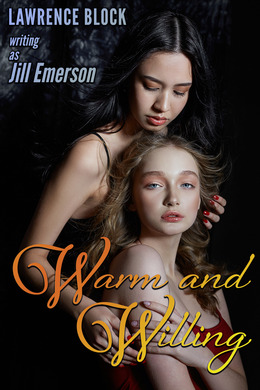 word Shadows on a book cover—and dispatched as an over-the-transom submission to John J. Plunkett at Midwood Tower Books. Now I’d been one of Midwood’s original writers, that’s where Sheldon Lord got his start, and why I submitted the way I did instead of approaching Midwood directly qualifies as a Damned Good Question, and one I examine unsparingly in A Writer Prepares.
word Shadows on a book cover—and dispatched as an over-the-transom submission to John J. Plunkett at Midwood Tower Books. Now I’d been one of Midwood’s original writers, that’s where Sheldon Lord got his start, and why I submitted the way I did instead of approaching Midwood directly qualifies as a Damned Good Question, and one I examine unsparingly in A Writer Prepares.
And any embarrassment I might feel over the numbing gormlessness of my approach is, I blush to admit, offset by pride over the fact that it worked. John Plunkett bought the book by return mail, and I never even considered objecting when he retitled it Warm and Willing. (And you’ll note that he changed only two words of my title. He kept the and.)
Warm and Willing is available as Ebook and Paperback and Hardcover—and also in Audio, voiced by Emily Beresford.
Plunkett was happy to publish Jill’s next effort, Enough of Sorrow, the title of which comes from a poem by Mary Carolyn Davies. The book, like its predecessor, is lesbian romance; it is also accurate to call it a coming-of-age novel.
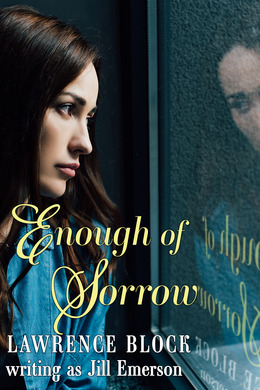 Midwood’s original paperback cover proclaimed the book to be the winner of the 1965 Midwood Award for Literary Excellence. Make of that what you will; the award, as far as I can make out, was given only once. I can’t pretend that it’s up there with the Nobel and the Pulitzer, but I think it’s safe to say it suggests that the folks at Midwood regarded Enough of Sorrow as a cut above the general run of similar books. I’d had that feeling myself while I was writing it, and you’d think Jill would have followed it with several more books for Midwood, setting the literary bar a little higher with each venture.
Midwood’s original paperback cover proclaimed the book to be the winner of the 1965 Midwood Award for Literary Excellence. Make of that what you will; the award, as far as I can make out, was given only once. I can’t pretend that it’s up there with the Nobel and the Pulitzer, but I think it’s safe to say it suggests that the folks at Midwood regarded Enough of Sorrow as a cut above the general run of similar books. I’d had that feeling myself while I was writing it, and you’d think Jill would have followed it with several more books for Midwood, setting the literary bar a little higher with each venture.
Wrong. Jill never wrote another book for Midwood, and I’d be hard put to tell you why. Never mind; the book’s available as Ebook – Paperback – Hardcover The Audio is impeccably voiced by Emily Beresford.
Jill’s Middle Period came a few years later, a little too late to receive attention in A Writer Prepares, which ends with the first Evan Tanner adventure in 1966. It consisted of three books, all Berkley paperback originals —Thirty and Threesome, both published in 1970, and 1972’s A Madwoman’s Diary. All of them owe their existence to two phenomena of the day, one societal and one personal.
First, the societal development. During the mid-1960s, erotic realism surged in contemporary American fiction. Literary novels with a frankness of vocabulary and explicit sexual candor were all at once being produced by respected authors and published by top houses. Just a few years earlier, Sheldon Lord and Andrew Shaw had written dozens of erotic novels without ever describing genitalia or using any of the words George Carlin famously identified as those you couldn’t say on TV.
Suddenly, one could write realistically about sex. Who knew?
Meanwhile, I was going through some significant inner turmoil as far as my own feelings about fiction were concerned. I was reading as much as ever, but the basic premise of the novel seemed unreal and artificial to me. Whether the narration was first- or third-person, whose was this voice in my ear, telling me this story? What were these words doing on these pages?
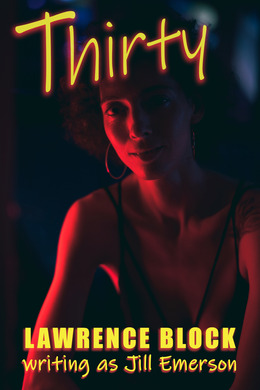 It seemed to me that a novel ought to have something in common with a trompe l’oeil painting—i.e., it ought to appear to be the thing itself. A diary, say, or a collection of letters, something that could legitimately exist as a vehicle for verisimilitude.
It seemed to me that a novel ought to have something in common with a trompe l’oeil painting—i.e., it ought to appear to be the thing itself. A diary, say, or a collection of letters, something that could legitimately exist as a vehicle for verisimilitude.
Thirty stemmed from my observation that a thirtieth birthday constituted a pivotal event for a lot of women. The book took the form of a diary of one such woman, and I was as intent on giving it the attributes of a genuine diary—gaps, false starts, evasions—as I was on telling a story. Berkley was well pleased with the book, but some dimwit there retitled it I Am Curious—Thirty in order to echo I Am Curious—Yellow, a 1967 Swedish film which the world has largely forgotten, as well it might. I restored my original title when I republished the book. Ebook Paperback Hardcover Once again, the Audio is the good work of Emily Beresford.
Threesome owed its conception to Naked Came the Stranger, a collaborative venture of two dozen writers, most of them 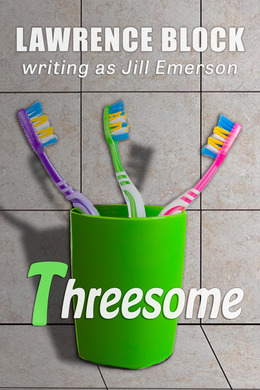 journalists; inspired by that book’s success, the titular trio of Harry, Rhoda, and Pru decide to create a bestseller of their own, telling their own actual story in alternating chapters. And, alas, as each reads the previous chapters, their ongoing story changes, and Unanticipated Things Happen.
journalists; inspired by that book’s success, the titular trio of Harry, Rhoda, and Pru decide to create a bestseller of their own, telling their own actual story in alternating chapters. And, alas, as each reads the previous chapters, their ongoing story changes, and Unanticipated Things Happen.
I loved writing this one. It was a challenge to move from one voice to another, and the whole book was as much tour de force as trompe l’oeil. (And that, along with pommes de terre, pretty much exhausts my command of French.) I thought of the book that immediately preceded it, moved the decimal point one degree to the left, and called it Three. Berkley called it Threesome, and when I republished the book I decided to let the new title stand.
Since the novel is told in three distinct narrative voices, one male and two female, the Threesome audiobook called for more than a single narrator. Bill Weeden and Dolores McDougal rose to the challenge, and the result is a treat. Ebook – Paperback – Hardcover – Audio
A Madwoman’s Diary is, as the title might lead you to suspect, a second venture in diary form. The protagonist is very different, 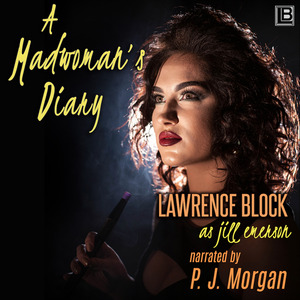 however, from the diarist of Thirty, and the storyline itself had an interesting origin; in one of the sex-fact compilations I wrote as John Warren Wells, an individual case history I’d fabricated lingered in my mind after I’d finished the book. It struck me that it had all the requisite ingredients of a novel, and I figured I could appropriate it for that purpose without having to worry that I might sue myself for plagiarism. (And Jill was in fact courteous enough to dedicate the book to JWW.) Ahem. Berkley, latching onto the recent success of The Sensuous Woman, called the book Sensuous. I suppose I was lucky they didn’t call it I Am Sensuous—Yellow. When I got the chance, I changed it back.
however, from the diarist of Thirty, and the storyline itself had an interesting origin; in one of the sex-fact compilations I wrote as John Warren Wells, an individual case history I’d fabricated lingered in my mind after I’d finished the book. It struck me that it had all the requisite ingredients of a novel, and I figured I could appropriate it for that purpose without having to worry that I might sue myself for plagiarism. (And Jill was in fact courteous enough to dedicate the book to JWW.) Ahem. Berkley, latching onto the recent success of The Sensuous Woman, called the book Sensuous. I suppose I was lucky they didn’t call it I Am Sensuous—Yellow. When I got the chance, I changed it back.
Ebook – Paperback – Hardcover. . .and Audio, of course, sensitively rendered by P J Morgan.
What would have been Jill Emerson’s fourth trompe l’oeil novel for Berkley was epistolary, consisting of the letters to and from its protagonist, the wily and impetuous Laurence Clarke. Instead my agent submitted Ronald Rabbit is a Dirty Old Man to Bernard Geis, who published it as a hardcover novel by Lawrence Block even as he was extending his own autobiography all the way to, um, Chapter Eleven. I could say more about Ronald Rabbit, but…
But you’re telling us about Jill Emerson.
I am, and the final three books don’t really constitute a group. They’re three very different novels, and the only common denominator is the Jill Emerson name and its attendant sensibility. I’m very fond of all three, but then I’m all too apt to smack my lips over my own cooking. No devotee of Baal was ever more inclined to bow down to the work of his own hands.
Jill’s seventh book, The Trouble With Eden, was her own first hardcover, a big multiple-viewpoint book set in Bucks County, 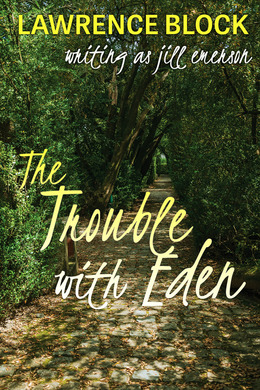 Pennsylvania. At the time I lived on the New Jersey side of the Delaware, just outside of Lambertville, and was for a year the hapless proprietor of an art gallery in New Hope. Berkley wanted Jill to write something that might remind readers of Peyton Place, so I picked Bucks County as a setting.
Pennsylvania. At the time I lived on the New Jersey side of the Delaware, just outside of Lambertville, and was for a year the hapless proprietor of an art gallery in New Hope. Berkley wanted Jill to write something that might remind readers of Peyton Place, so I picked Bucks County as a setting.
I remembered Berkley’s fondness for titles that called other titles to mind. Indeed, how could I forget? And I was well aware that Edmund Schiddel had managed to sell a ton of books in 1959 while scandalizing a slew of Pennsylvanians with The Devil in Bucks County. So I ran The Trouble With Bucks County up the flagpole and waited confidently for everybody to salute. Instead they went with The Trouble With Eden. You know what? I like their title better, and have elected to keep it. Ebook – Paperback – Hardcover
A Week as Andrea Benstock owes its existence to an editor at Dell Books and its form to a Belgian novelist. Peggy Roth 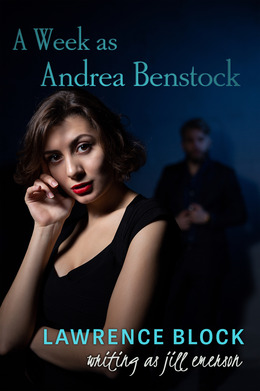 persuaded me that I ought to find a novel in my having grown up Jewish in Buffalo, New York; Georges Simenon’s early novel, Four Days in a Lifetime, gave me the idea of recounting the story of a woman’s married life by spotlighting seven representative days over a period of ten years.
persuaded me that I ought to find a novel in my having grown up Jewish in Buffalo, New York; Georges Simenon’s early novel, Four Days in a Lifetime, gave me the idea of recounting the story of a woman’s married life by spotlighting seven representative days over a period of ten years.
My agent submitted it to Don Fine, founder and proprietor of Arbor House. A meeting was arranged, and Don was astonished when I turned up as Jill. He urged me more than once to publish the book under my own name, arguing that the book would be taken more seriously with a man’s name on it. I stuck to my guns, though I’d be hard put now to explain why, and the book was published in 1975 and serialized in Redbook. Ebook – Paperback – Hardcover
Finally, Getting Off began with a single short story about a young woman who lets herself be picked up and taken home by a guy with a menacing vibe to him. She turns out to be the 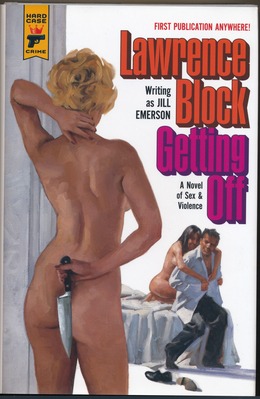 dangerous one, and proves it by murdering the fellow and rifling his wallet. Another story followed, and another, and by the fourth it was apparent to me that, as with Keller and Hit Man, I was writing a novel on the installment plan.
dangerous one, and proves it by murdering the fellow and rifling his wallet. Another story followed, and another, and by the fourth it was apparent to me that, as with Keller and Hit Man, I was writing a novel on the installment plan.
It’s a right wonder of a book, sexually explicit and unapologetically violent, and there was no reason to hang Jill’s name on it and every reason not to—but it just felt right to me to give Jill the byline. I did so via an open pen name—“by Lawrence Block writing as Jill Emerson”—and Charles Ardai published it as Hard Case Crime’s first hardcover title.
I added the subtitle “A Novel of Sex and Violence,” and wouldn’t you know it? Some ninny on Amazon gave it a one-star review because he objected to the sex and violence. Never mind. It’s still an active title for Hard Case, so I couldn’t give it a new cover if I wanted to, but why on earth would I want to replace the stunning Greg Manchess cover?
You may be crazy but you’re not stupid.
Exactly. Hard Case offers Ebook – Paperback – Hardcover editions, and Recorded Books can supply Lily Bask’s stellar Audio rendition, and—
Audio!
![]() What about it?
What about it?
That’s what I was about to ask. What about audio for The Trouble With Eden and A Week as Andrea Benstock?
Even as we speak, Barbara Nevins Taylor is lending her voice to A Week as Andrea Benstock. Her audiobooks of A Woman Must Love and Of Shame and Joy have been very well received, and I can’t wait to hear what she does with Andrea.
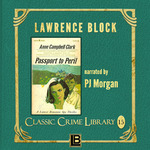 Well, that’s good news. But what about The Trouble With Eden? How did it get to be the red-haired stepchild of the Jill Emerson oeuvre?
Well, that’s good news. But what about The Trouble With Eden? How did it get to be the red-haired stepchild of the Jill Emerson oeuvre?
Oeuvre, eh? Well, pommes de terre to you, mon vieux. Anyway, it’s no such thing, and an audiobook thereof will be along in due course. The reason Eden is on the shelf for the moment is because everybody’s busy. PJ, who did such a fine job with Passport to Peril, has just signed on for the first-ever audio version of the 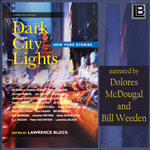 classic Campus Tramp. Bill and Dolores, whose recent work includes 3 is Not a Crowd and Dark City Lights, have teamed up again for Circle of Sinners.
classic Campus Tramp. Bill and Dolores, whose recent work includes 3 is Not a Crowd and Dark City Lights, have teamed up again for Circle of Sinners.
I’m beginning to get the picture.
Well, don’t blink, because there’s more. Theo Holland, who followed the Evan Tanner series with a title from my Classic Crime Library, Broadway Can Be Murder, is staying busy with A Girl Called Honey. And Peter Berkrot, who’s done 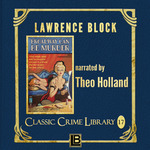 marvelous work with several books of mine, most recently The Darkling Halls of Ivy, has completed recording A Writer Prepares for Tantor Audio; you can preorder it now, and you’ll be able to listen to it on the book’s publication date of June 24.
marvelous work with several books of mine, most recently The Darkling Halls of Ivy, has completed recording A Writer Prepares for Tantor Audio; you can preorder it now, and you’ll be able to listen to it on the book’s publication date of June 24.
That’s not that far away.
I know! It was well in the future when I started work on this endless newsletter, but time takes time, and Publication Day is less than two weeks away. So it’s probably appropriate to remind 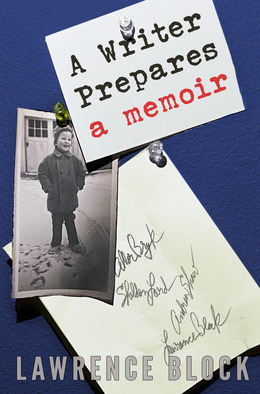 you that you’ll save $3 when you preorder the ebook for $6.99. You can also preorder the paperback and hardcover—and SST Publications still have a very few copies remaining of their deluxe signed-and-numbered limited edition.
you that you’ll save $3 when you preorder the ebook for $6.99. You can also preorder the paperback and hardcover—and SST Publications still have a very few copies remaining of their deluxe signed-and-numbered limited edition.
Alex Kourvo’s thing is reviewing books for writers. Why don’t you tell us what she said about A Writer Prepares?
Well. . .
Oh, come on. You know you want to.
Oh, okay. “A Writer Prepares is incredibly smooth reading, written in Block’s conversational style. It’s also funny. I kept stopping to read parts of it out loud to my family, because they wanted to know why I was giggling my way through a memoir. Block puts a light spin on everything, reminding us that writing truly is the best job in the world. Reading a writer’s memoir is always inspirational, but A Writer Prepares is both inspiring and instructive. It’s a delightful look back in time filled with lessons for the present day.”
Whew, there you go. So how’s that for a way to make a long story longer?
Cheers,
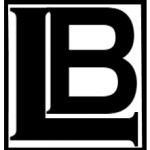
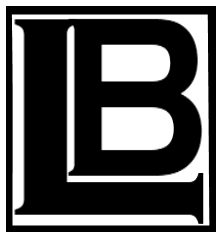
I first read you as Chip Harrison, then much later as Lawrence Block, and now I find out you’re JIll Emerson.
I wonder how many other books of yours I’ve read that I don’t know about.
Is there a way to buy signed hardcovers of these Jill Emerson novels?
I’m afraid not.